This Innovative Soil-Less System Could Be an Answer to Every Farmer’s Woes
For Kanika Ahuja, sustainability is a way of life. The young entrepreneur has founded Clever Bud with the hope of resolving malnutrition and food crisis.
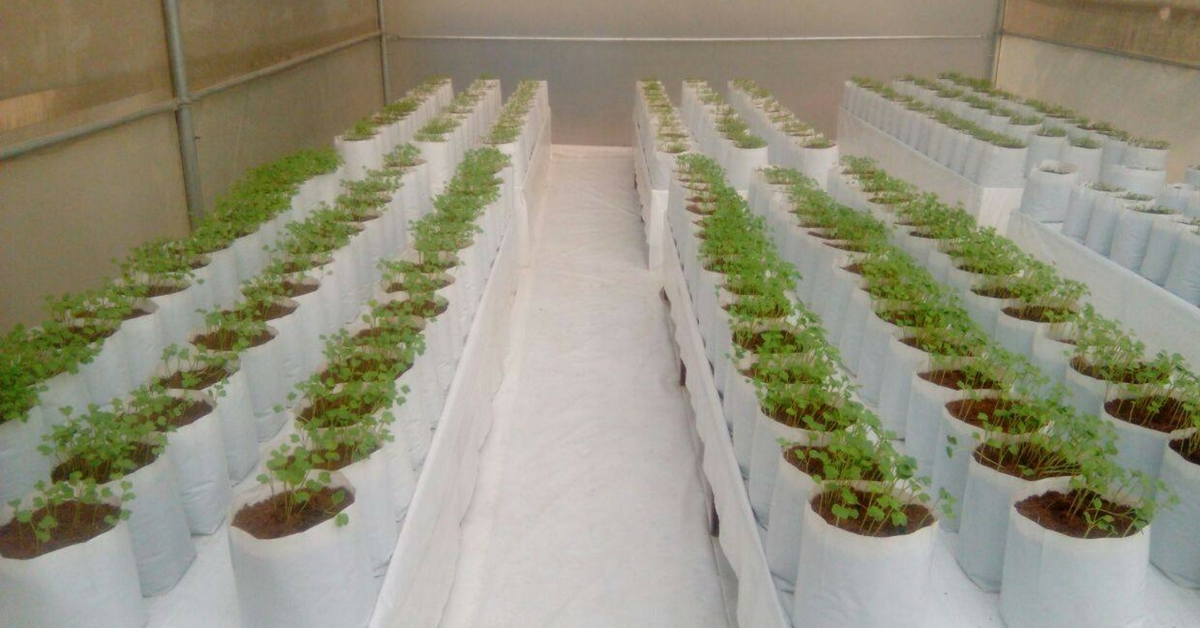
“Several years ago, I had held a medical camp in the slum school in Bahadurgarh, Haryana. I was aghast to find that every single child there was malnourished,” says Kanika Ahuja. “My friend, who was a doctor treating children at the camp, said that at least 80% of the cases were just of extreme malnutrition. This was a turning point in my life when I realized that I’ll have to find a way to help these children fight this problem.”
Kanika founded Clever Bud, a farming system that promises to yield better quality crops and makes seasonal produce a thing of the past.
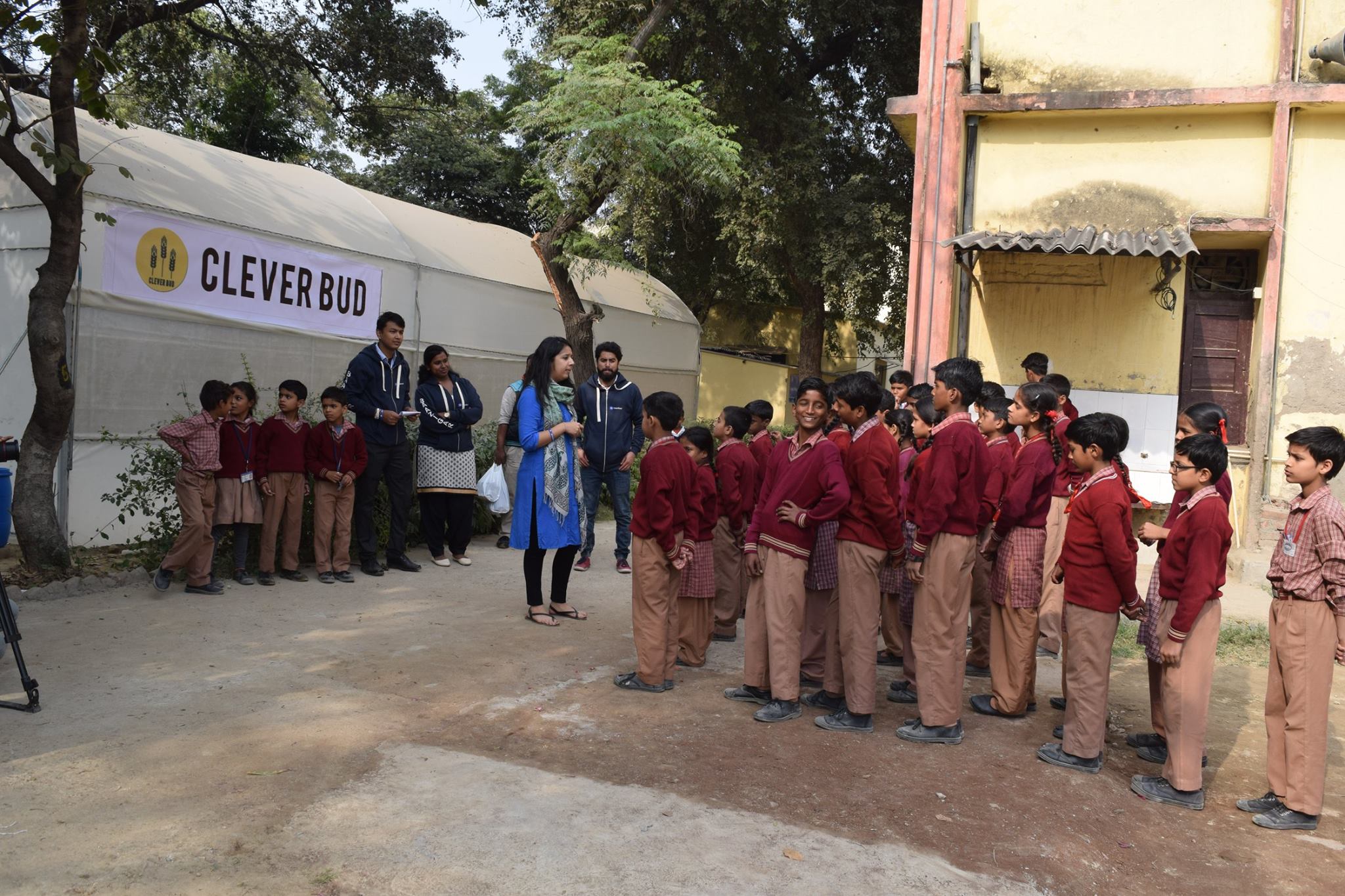
Sustainability was never really a new concept to Kanika, whose parents are the founders of Conserve India, a waste management and upcycling organisation. Starting her career with a short stint in market research, she realised her calling lay in social enterprises. She joined her parents’ organisation and went on to start her own entrepreneurial venture.
Though it was the pervasive state of malnutrition and disease in the slums of Bahadurgarh that motivated Kanika to take the path, the initiative has the potential to benefit everyone.
“Food, health and social good have always been important factors in my life. Clever Bud just brought all of these together. Today, malnutrition isn’t just a problem of the underprivileged. While it hits them the hardest, other sections of society bear the brunt too. To top that, overuse of pesticides for faster production has increased the number of cancer cases, asthma, autism and many other diseases, while otherwise compromising in nutritional value.”
The Clever Bud system is based on polyhouse farming and simplified hydroponics to optimise the growth of vegetables.
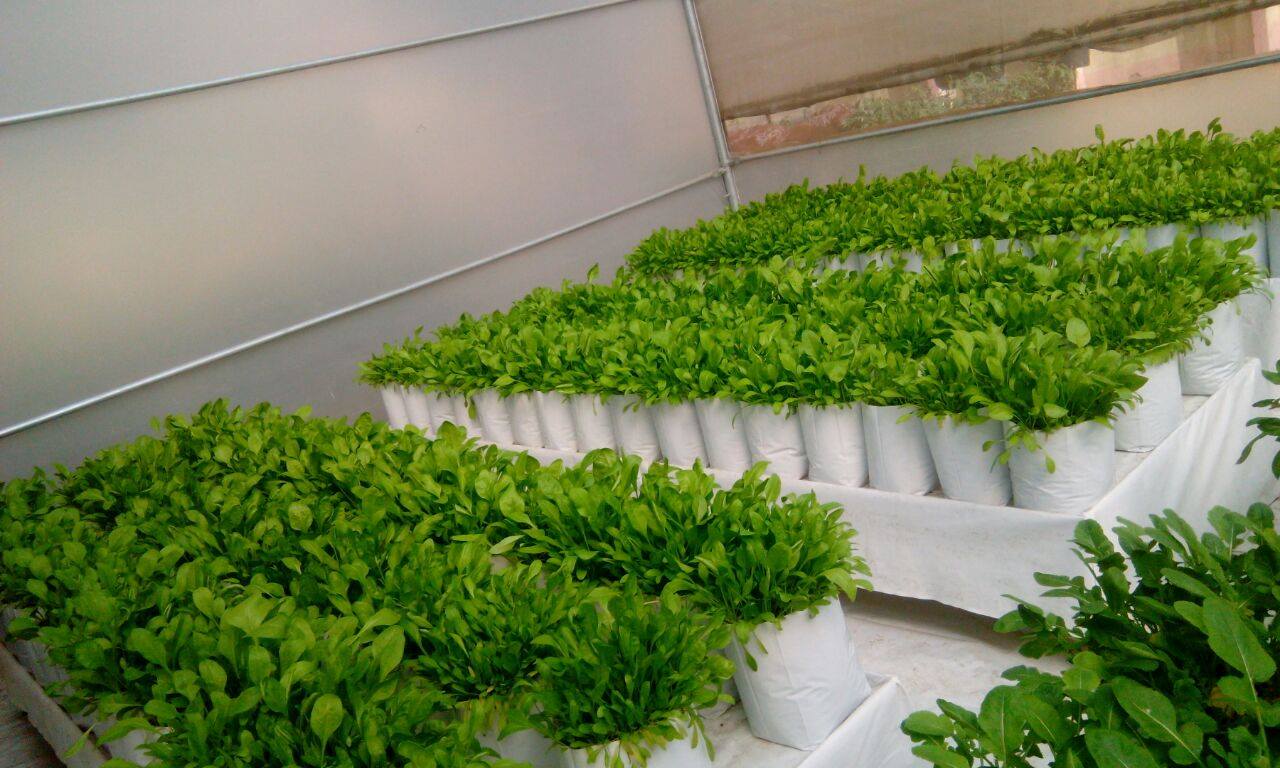
Vegetable seeds are planted in a soil-less medium while the nutrients are fed externally. “The whole idea is to give the power to the consumers themselves to grow their own clean and green food, which is high in nutrition and pesticide-free,” says Kanika.
The system promises a yield that is three-to-five times faster than traditional farming. The quality of crops also improves drastically. “I was personally, intrigued by the hydroponics technology and the potential it carries to actually make a real contribution in attaining food security in India,” Kanika adds.
You might also like: Swooning Over China’s Vertical Gardens? Just Grow a Vertical Garden in Your Own Terrace!
The brand has two major product types. CB Soil System, suitable for fertile areas, makes use of polyhouse farming and creates a favourable climate within a controlled indoor environment for year-round yield. For arid regions CB recommends the soil-less system, which incorporates coco peat, perlite and vermiculite as the growing medium. The farming method also eliminates the need for pesticides and yields higher volume over lesser area.
The CB team also offers customisation features like drip irrigation, solar panels and pumps, and temperature-controlling methods to enhance the farming experience. Kanika says about the simplicity of the systems: “They’re easy to use even for someone who has no or little knowledge of farming. Simple instructions have led even children’s groups to manage the system efficiently.”
Clever Bud has been running pilot projects in Haryana and is also setting up new projects.
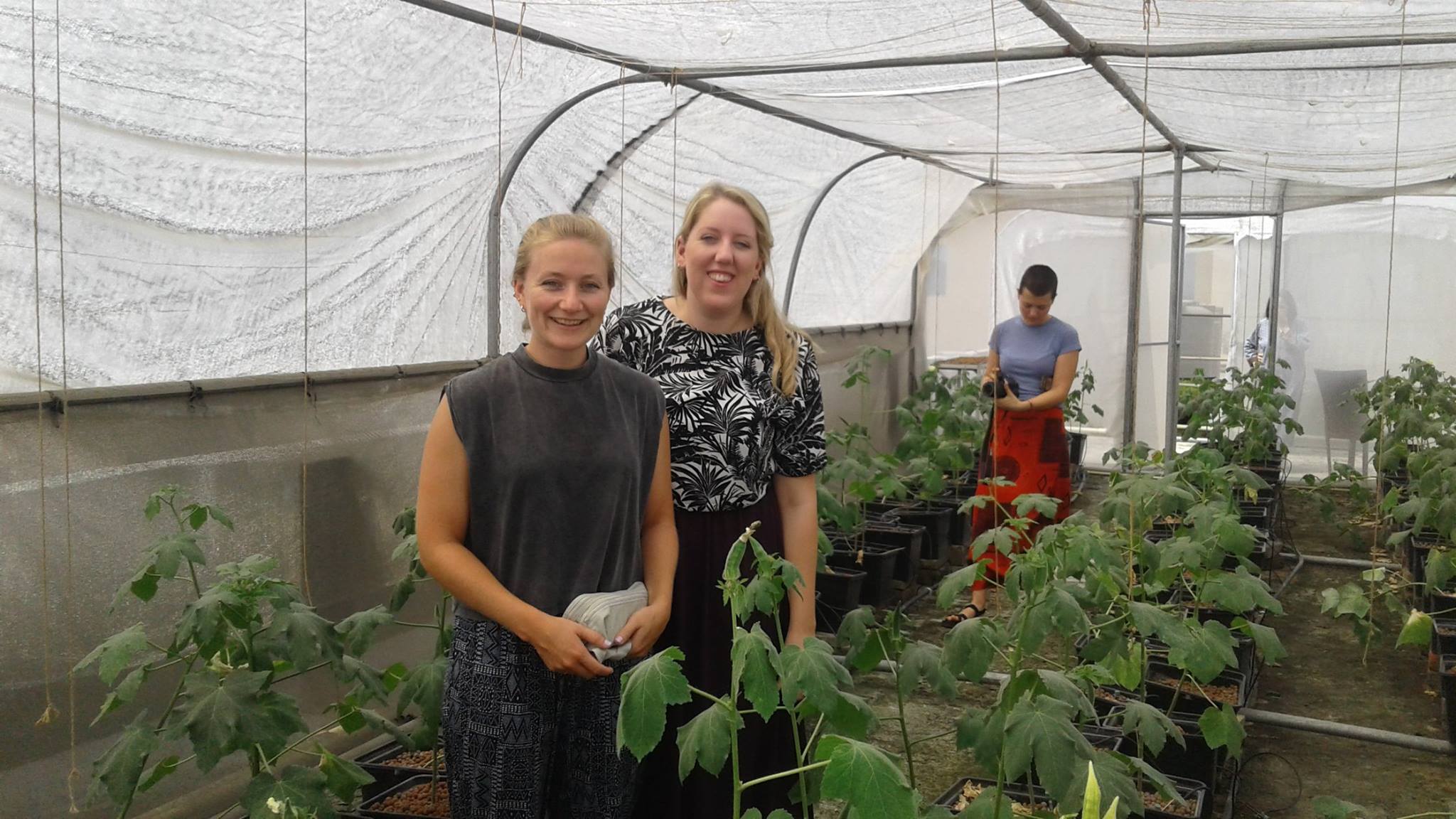
The first three pilot projects were set up in Bahadurgarh two years ago, to test the technology and identify areas for further development. Kanika has worked with the communities living in the area’s slums for over half a decade, which led to her setting up the projects there.
“Our pilot systems were run by women from the slum who nurtured these systems and learnt how to grow a variety of vegetables in them – from leafy vegetables like spinach and fenugreek to lady finger, different types of chillies and even brinjal. The produce harvested was theirs. Some of it went back to the slum for personal consumption while some was sold in the market nearby. The women even suggested some improvements which we have now incorporated in our newer systems. We were thus able to create a self-sustainable model where unskilled women could create a business for themselves and feed their children with high nutritious produce.”
Community involvement lies at the heart of Clever Bud systems.
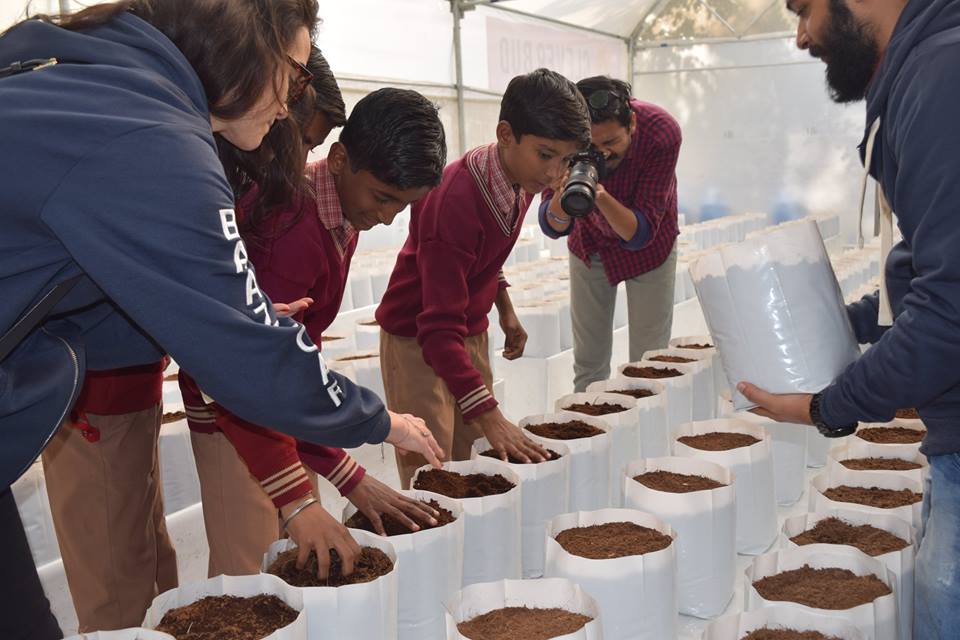
The CB team is presently in talks with PWD Delhi to train and involve local folks to make viable sustainable business models for communities in need. Additionally, CB systems have also been introduced in low-income schools. They are run by student bodies and the vegetables produced are added to the mid-day meals for the children.
“The short term goal is to get involved with more corporates in their CSR programmes to fund systems in schools for nutrition as well as education. After all, the children of today are the leaders of tomorrow,” says Kanika, who hopes to add Clever Bud systems in at least 10 low-income schools this year.
Kanika works with a diverse team on the project. Clever Bud’s director Shivalika Dawar is an actuary by profession. A team of agricultural experts are on board to impart knowledge on farming while a doctor offers advice on the impact of seeds and pesticides on human consumption. Kanika says, “All of us love working together while sipping chai. We often have meetings under the sun, next to our rooftop systems in Bahadurgarh, drawing inspiration from our first systems.
You might also like: Gurugram Residents Turn Farmers and Sellers With a Community Organic Produce Market
Kanika, who is a Delhi resident, hopes to see a CB system on every empty rooftop in Delhi. The CB team is working on a design that combines rooftop gardens with solar energy. They also aim to involve RWAs to introduce local farms whose produce can be sold by a locality or city-based brand.
Agriculture in India is often left to the vagaries of weather conditions, as drought remains a key agricultural crisis. Kanika hopes that Clever Bud will offer long-term solutions, “We would like to work more with the state governments to better use under-utilised public spaces and use these wastelands for profit while working towards the goal of food security.”
Find out more about Clever Bud on its Facebook page. To get in touch with Kanika, click here.
Like this story? Or have something to share? Write to us: [email protected], or connect with us on Facebook and Twitter.
NEW: Click here to get positive news on WhatsApp!
This story made me
-
97
-
121
-
89
-
167
Tell Us More
We bring stories straight from the heart of India, to inspire millions and create a wave of impact. Our positive movement is growing bigger everyday, and we would love for you to join it.
Please contribute whatever you can, every little penny helps our team in bringing you more stories that support dreams and spread hope.



















